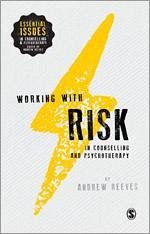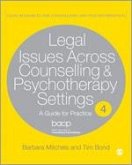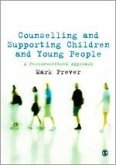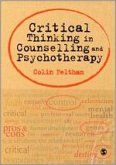The wide-ranging contexts in which counselling and psychotherapy is now practiced means clients present with a range of risks that therapists have to respond to. Risk is an ever-present issue for counsellors and psychotherapists and, in an increasingly litigious culture, the need for trainees to develop a sound understanding of how the right tools and the right knowledge can support their practice has never been greater. In this book Andrew Reeves takes trainees, newly qualified practitioners, and more experienced practitioners step-by-step through what is meant by risk, offering practical hints and tips and links to policy and research to inform good ethical practice along the way. This book tackles: • The definition of risk and how risk is linked to social, psychological and relational factors • Working with those who are at risk of suicide, self-injury, self-harm and/or are an endangerment to others • How therapists should respond to the risk in situations involving child protection, mental health crises, and in the therapeutic process itself • The positive side of risk-taking • How counsellors and psychotherapists can work with risk proactively and positively, informed by research. Filled with case studies, ethical dilemmas, reflective questions, discussion questions and further reading, this book offers counsellors and psychotherapists guidance on how they can work with risk proactively and positively. It is an essential resource for all services, organisations and individual practitioners.
Hinweis: Dieser Artikel kann nur an eine deutsche Lieferadresse ausgeliefert werden.
Hinweis: Dieser Artikel kann nur an eine deutsche Lieferadresse ausgeliefert werden.
When confronted by risk it is common for us to lose the ability to think. This book offers a broad, realistic and grounded approach to thinking about risk. Risk is looked at from the vantage point of what is risky for the client and also for the therapist. The use of client vignettes and reflective exercises enable the reader to engage directly with their attitudes, feelings and also their responsibilities towards clients exhibiting risky behaviour. The book also embraces issues related to self- harm and risk in the context of mental health. Andrew Reeves has written a compact book that is useful to therapeutic practitioners but also to those teaching others about the nuts and bolts of addressing risk in the counselling room and other helping settings.
Dr Liz Coldridge
Dr Liz Coldridge








